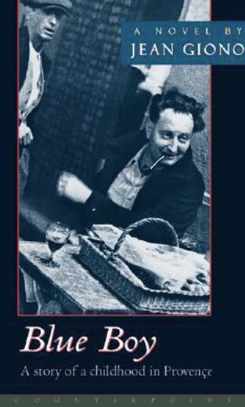 | |
| Author | Jean Giono |
|---|---|
| Original title | Jean le Bleu |
| Translator | Katherine A. Clarke |
| Language | French |
| Publisher | Éditions Grasset |
Publication date | 1932 |
| Publication place | France |
Published in English | 1946 |
| Pages | 316 |
Blue Boy (French : Jean le Bleu) is a 1932 novel by French writer Jean Giono. It tells the story of a family in Provence, with an ironer mother and a shoemaker father. The book is largely autobiographical and based on Giono's childhood, although it has many fictional anecdotes. An English translation by Katherine A. Clarke was published in 1946. [1]